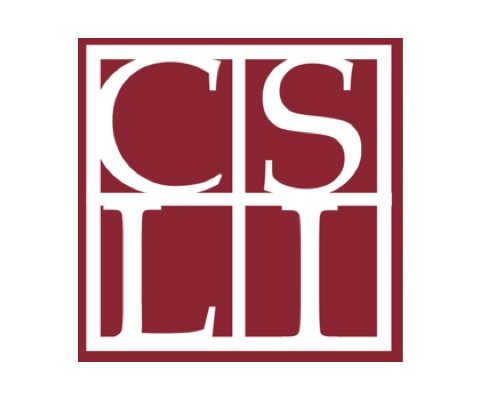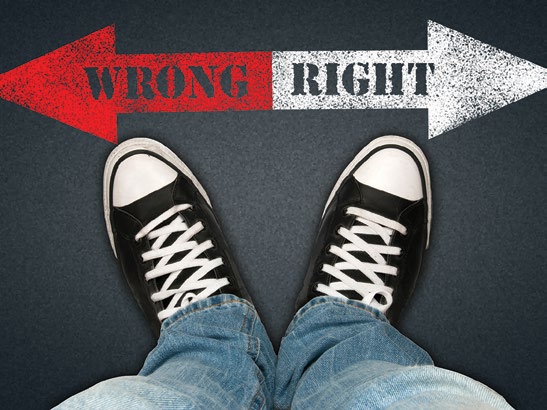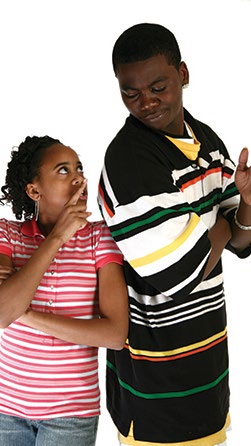Back to series


Questions and Answers: Who’s Right, Who’s Wrong?
Learn more in our Dawn Treader Magazine
 Polly: Morning, Riley. It’s been a while since I’ve seen you.
Polly: Morning, Riley. It’s been a while since I’ve seen you.
Riley: Hello, Polly. I’m glad to see you too; I’ve been meaning to ask you something.
Polly: Sure, what about?
Riley: I’d just like your advice on sharing the Gospel with some friends of mine. The trouble is, they’re such nice people that I’m afraid of offending them by trying to convince them that they ought to become followers of Jesus. I mean, since they seem to be getting along fine in life as they are, how am I supposed to tell them that they need something else?
Polly: That can be very hard in our society today. We worry so much about offending people, because nothing is considered wrong anymore, except telling people that they are!
Riley: Sometimes I wonder — really, Polly, is it so much that they’re wrong as, oh, I don’t know … something a little less severe, perhaps?
Polly: That’s just the trouble nowadays. Anything but calling things right and wrong. Nobody believes in that anymore, and that’s the root of the whole trouble. If there is no right and wrong, what’s the point of believing in anything? In fact, you really can’t  believe in anything.
believe in anything.
Riley: Well, Polly, don’t you think you’re putting the situation a bit strongly? I mean, people do still want to do the right thing nowadays.
Polly: Sure. But when you can change what right and wrong mean according to whatever suits you at the time, you don’t get very far with it. G.K. Chesterton talked about that more than a hundred years ago in his book Orthodoxy: “We are not altering the real to suit the ideal. We are altering the ideal: it is easier … let us suppose a man wanted a particular kind of world; say, a blue world … he might toil for a long time at the transformation … But if he altered his favorite color every day, he would not get on at all … How can I answer if there is no eternal test … What on earth is the current morality, except in its literal sense the morality that is always running away?”2 Chesterton saw it coming, but it is actually here in practice now. People don’t want to acknowledge that there is a real, definite right and wrong.
Riley: Well, what is an argument that might convince someone about there being a right and wrong?
 Polly: This is one of the subjects that C.S. Lewis talked about in Mere Christianity. At the beginning of the book, he argued that quarreling shows that people are born with a sense of right and wrong. Lewis noted that when quarreling, people say things like:
Polly: This is one of the subjects that C.S. Lewis talked about in Mere Christianity. At the beginning of the book, he argued that quarreling shows that people are born with a sense of right and wrong. Lewis noted that when quarreling, people say things like:
How’d you like it if anyone did the same to
you?’ — That’s my seat, I was there first’ —
‘Leave him alone, he isn’t doing you any harm’
— ‘Why should you shove in first?’ — ‘Give me
a bit of your orange, I gave you a bit of mine’
— ‘Come on, you promised.’3
Lewis observed that when people quarrel this way, they are appealing to some kind of standard they expect the other person to know about. A little later in the book, Lewis argued that “The Moral Law … is not a mere fancy, for we cannot get rid of the idea, and most of the things we say and think about men would be reduced to nonsense if we did.”4
Riley: Then how can we get people to acknowledge a need for redemption? That’s what this all comes down to in the end.
Polly: Basically, we have to put the situation to them of how they would feel if someone really did do them wrong. One pastor that I heard of used to discuss moral issues and bring his conversation partners around to insisting that there was no clear, definite rule of right and wrong, and then turn their argument on its head by saying, “Okay, then give me your wallet.” Once people realize that they do acknowledge an absolute standard of right and wrong for themselves, it’s an easy step to get them to acknowledge an absolute standard for the world, which can only come from God. And if there is right and wrong, then each one of us has clearly done wrong, and so needs redemption. And that is where Jesus comes in.
Riley: Pretty straightforward. It might be a little more work to put it into practice, but I’ll give it a try.
Ask your children: What do you think about Polly’s answers to Riley’s questions? Do you have any other questions of your own that this dialogue has brought up for you? Challenge them to think up more responses they could give, if someone asked them a question like Riley’s.
Notes.
2 G.K. Chesterton, Orthodoxy (New York: An Image Book, published by Doubleday, a division of Random House, Inc., 2001), pp. 109, 112.
3 Lewis, op. cit., p. 11.
4 Lewis, op. cit., p. 30.
C.S. Lewis Institute
Author
C.S. Lewis Institute, in the legacy of C.S. Lewis, works to develop wholehearted disciples of Jesus Christ who will articulate, defend, share, and live their faith in personal and public life. Founded in 1976 by Dr. James Houston and James R. Hiskey, the Institute provides leading teachers who address important issues of the day from the perspective of Biblical orthodoxy, while also providing discipleship for individuals in small groups.

 COPYRIGHT: This publication is published by C.S. Lewis Institute; 8001 Braddock Road, Suite 301; Springfield, VA 22151. Portions of the publication may be reproduced for noncommercial, local church or ministry use without prior permission. Electronic copies of the PDF files may be duplicated and transmitted via e-mail for personal and church use. Articles may not be modified without prior written permission of the Institute. For questions, contact the Institute: 703.914.5602 or email us.
COPYRIGHT: This publication is published by C.S. Lewis Institute; 8001 Braddock Road, Suite 301; Springfield, VA 22151. Portions of the publication may be reproduced for noncommercial, local church or ministry use without prior permission. Electronic copies of the PDF files may be duplicated and transmitted via e-mail for personal and church use. Articles may not be modified without prior written permission of the Institute. For questions, contact the Institute: 703.914.5602 or email us.
Speakers

C.S. Lewis Institute
Author
Team Members
C.S. Lewis Institute
Author
C.S. Lewis Institute, in the legacy of C.S. Lewis, works to develop wholehearted disciples of Jesus Christ who will articulate, defend, share, and live their faith in personal and public life. Founded in 1976 by Dr. James Houston and James R. Hiskey, the Institute provides leading teachers who address important issues of the day from the perspective of Biblical orthodoxy, while also providing discipleship for individuals in small groups.


